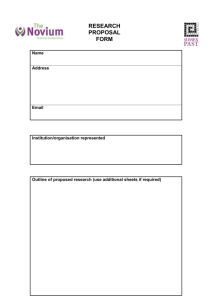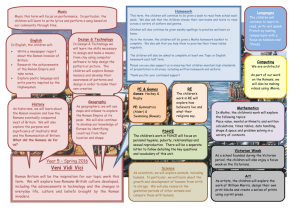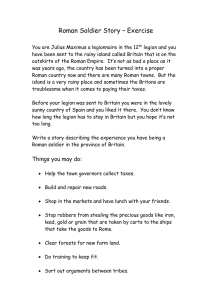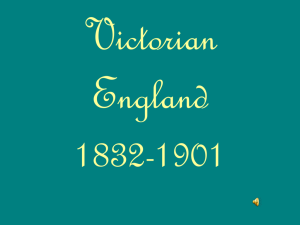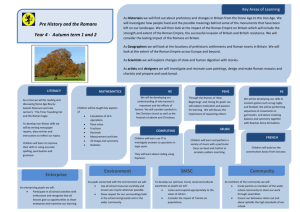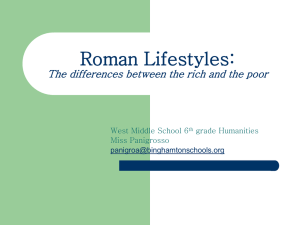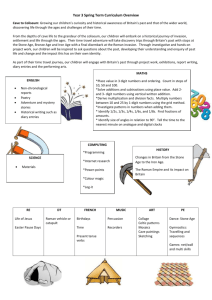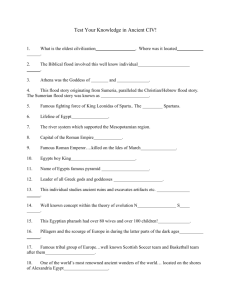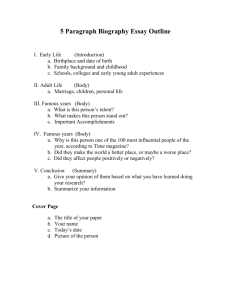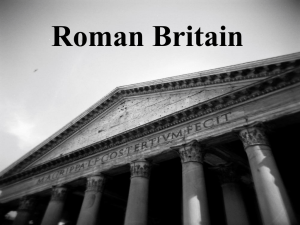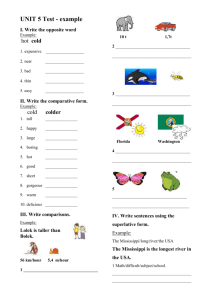HISTORY POLICY - Aldingbourne Primary School
advertisement
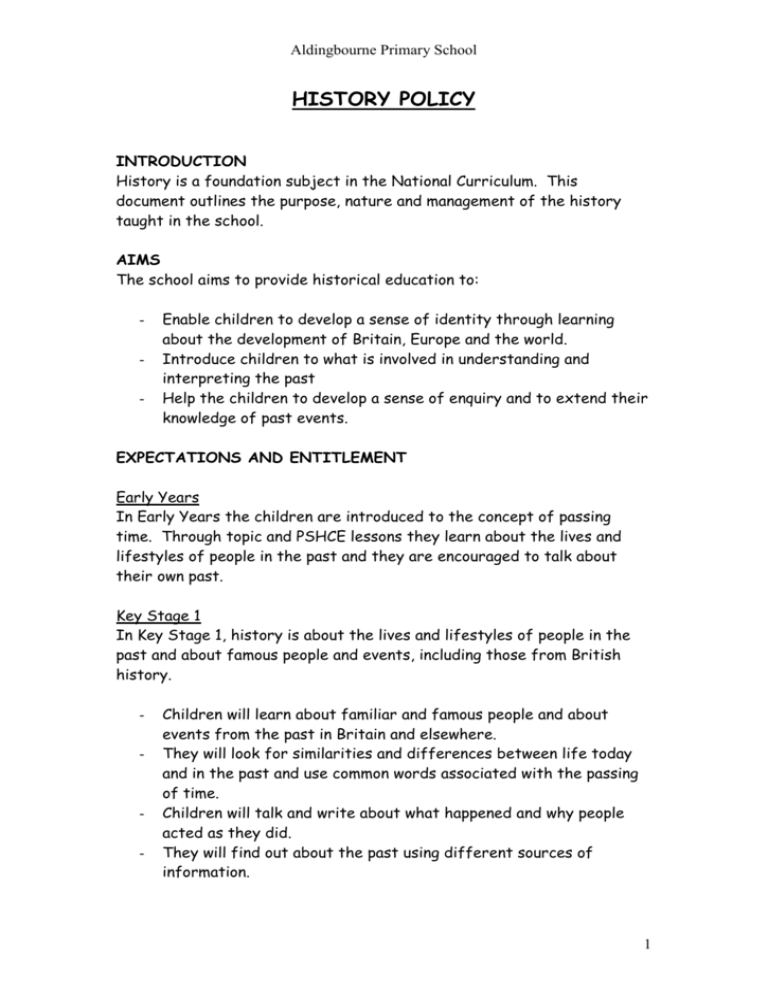
Aldingbourne Primary School HISTORY POLICY INTRODUCTION History is a foundation subject in the National Curriculum. This document outlines the purpose, nature and management of the history taught in the school. AIMS The school aims to provide historical education to: - Enable children to develop a sense of identity through learning about the development of Britain, Europe and the world. Introduce children to what is involved in understanding and interpreting the past Help the children to develop a sense of enquiry and to extend their knowledge of past events. EXPECTATIONS AND ENTITLEMENT Early Years In Early Years the children are introduced to the concept of passing time. Through topic and PSHCE lessons they learn about the lives and lifestyles of people in the past and they are encouraged to talk about their own past. Key Stage 1 In Key Stage 1, history is about the lives and lifestyles of people in the past and about famous people and events, including those from British history. - - Children will learn about familiar and famous people and about events from the past in Britain and elsewhere. They will look for similarities and differences between life today and in the past and use common words associated with the passing of time. Children will talk and write about what happened and why people acted as they did. They will find out about the past using different sources of information. 1 Aldingbourne Primary School Key Stage 2 In Key Stage 2, history is about people and important events and developments from recent and more distant times in the locality, in Britain and in other parts of the world. - - - Children will find out about people, famous people and groups of people and important events and developments from recent and more distant times, making links across different periods of history since prehistoric times. They will learn about different aspects of local, British and world history. Children will discuss why things happened or changed and the results. They will carry out historical enquiries using a variety of sources of information and look at how and why the past is interpreted in different ways. Children will use their understanding of chronology and historical terms when talking or writing about the past. TEACHING METHODS AND ORGANISATION History is taught through a programme of termly topics. Work is collected together in topic books. The precise details of history coverage are set out in the schemes of work. Where possible children are given opportunities to work from experiences that enable history to “come alive”. They participate in roleplay activities. They visit specific sites of historical interest, e.g. Fishbourne Roman Palace, Aldingbourne Church, Tangmere Aviation Museum. They take part in workshops that help to create images of life in the past, e.g. Roman Domestic Workshop at Fishbourne and various theatre workshops visit. Children are also given opportunities to work in the classroom using artefacts which originate from the period being studied, e.g. Victorian, Roman collections. From time to time members of the local community are able to visit the school in order to relate their own personal experiences and knowledge relating to a particular period in history, e.g. Crime and Punishment in Victorian times. 2 Aldingbourne Primary School History is continually experienced through the teaching of other subjects, e.g. days, months, time in Maths; important scientific discoveries e.g. moon landing; music and art. Work is planned to enable children to participate fully, irrespective of ability or gender. RESOURCES The school has collections of artefacts relating to particular topics. It has a well-stocked library. In addition to this, teachers regularly use the West Sussex School Library Loan Service to increase the resources available. This policy was agreed by the staff in November 2002 and will be reviewed annually. Date of last review – June 2014. 3
